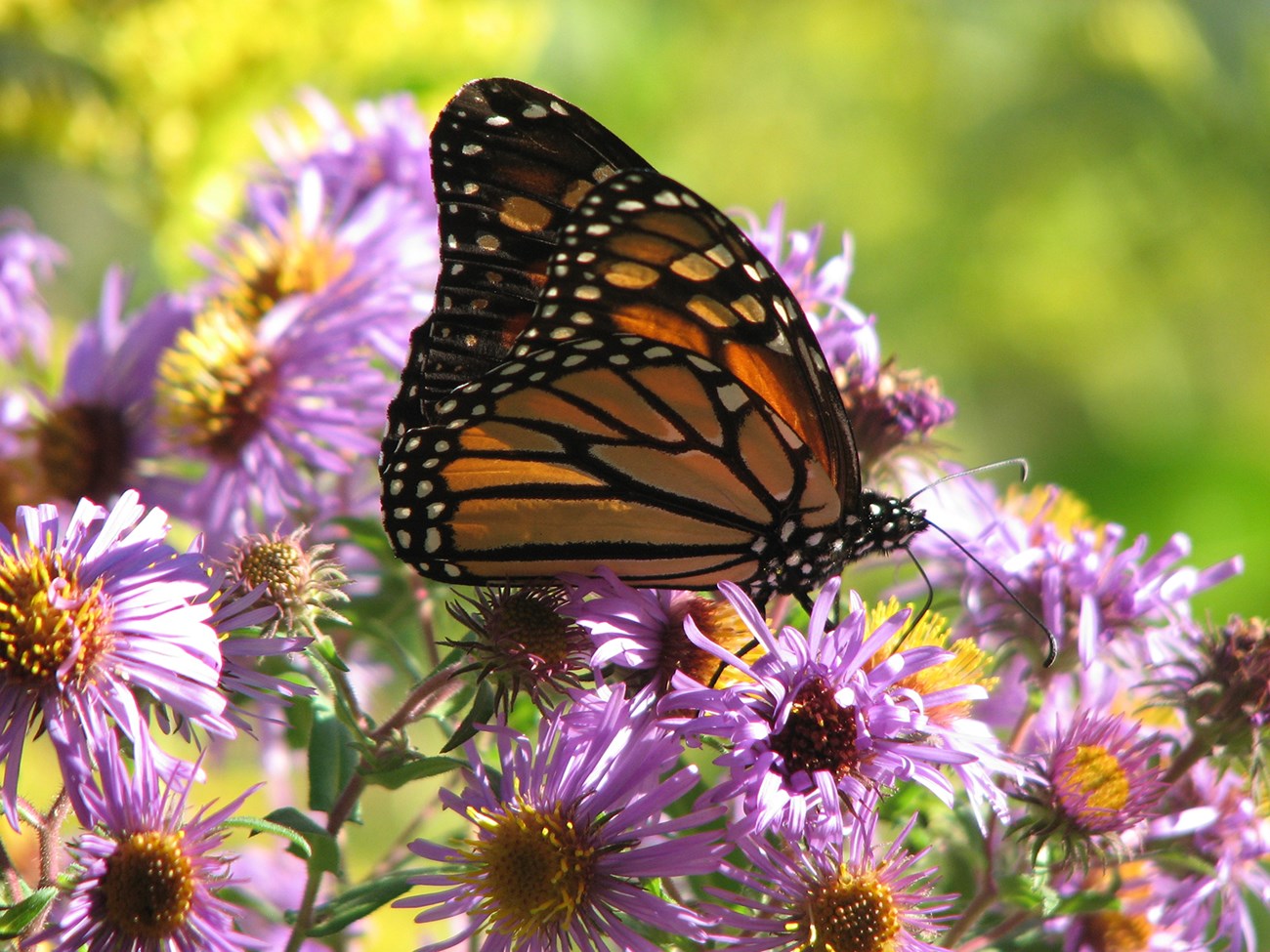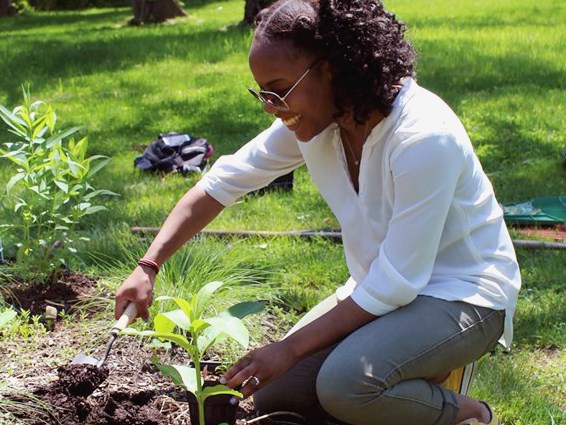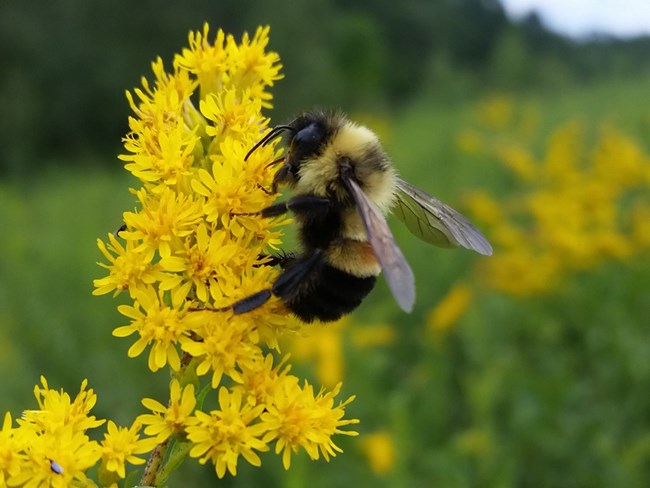Last updated: April 3, 2021
Article
National Heritage Areas and Partners Embrace “Operation Pollination”

NPS Photo
Philadelphia, PA (August 30, 2019) – Pollinators, such as bees, butterflies, and bats, play a crucial role in our environment, but their populations are in peril. That’s why National Heritage Areas (NHAs) around the country are teaming up with local partners to support pollinators and their habitats through an initiative known as “Operation Pollination.”
More than 75 percent of the Earth's flowering plants depend on pollinators, yet many pollinator species have seen drastic declines in population due to pesticides, parasites, invasive species, and habitat loss caused by human development, and climate change.
In response, three NHAs in the Midwest developed Operation Pollination in 2018. Using the St. Croix Valley Pollinator Partnership as a model, Abraham Lincoln National Heritage Area (Illinois), MotorCities National Heritage Area (Michigan), and Northern Plains National Heritage Area (North Dakota) drafted resolutions to support pollinators and invited their local partners to get involved. By the end of the year, the three NHAs were joined by more than 100 public and private partners who pledged to protect, enhance, and restore pollinator habitat.

Schuylkill River Greenways NHA Photo
Since then, Operation Pollination has spread across the country, with more than a dozen NHAs joining the initiative. Each NHA also invites partners to sign a pledge to support pollinators with the means available to them, whether it be planting a pollinator garden, holding educational programs, or raising awareness about pollinators.
“Protecting and supporting pollinators and their habitat is a very simple thing for organizations to commit to do,” said Chris Stein, Chief of Heritage Areas for the Midwest Region of the National Park Service, who was involved in the development of Operation Pollination. “In many cases, they are already doing something. In other cases, it doesn’t cost an extra cent to get involved—just some time.”
The Upper Housatonic Valley National Heritage Area in Massachusetts and Connecticut is developing a regional plan for pollinator protection that will “knit together the many grassroots efforts into a real force for large landscape change,” said Executive Director Dan Bolognani. “When we announced our interest in acting as a catalyst for the creation of a regional plan of protection, we found overwhelming support from a wide variety of partners, including educational institutions, food cooperatives, farmers and agricultural commissions.”

NPS Photo
Even in the early stages of the initiative, NHAs are seeing the benefits of their involvement. Blackstone River Valley National Heritage Corridor, located in Massachusetts and Rhode Island, reported that within the first two months, 12 partners signed pollinator pledges. Those partners committed to take specific action, ranging from “maintaining pesticide-free gardens to planting pollinator-friendly plants in gardens and from maintaining apiaries on campus to providing pollinator education classes,” according to Bonnie Combs, Marketing Director for the Corridor. Many of those partners then participated in special Pollinator Week educational and interactive programs supported by the Corridor.
Sara Capen, Executive Director of Niagara Falls National Heritage Area in New York, said Operation Pollination is a great opportunity for NHAs and partners to spread awareness of the plight of pollinators and to unite around efforts to protect them. “It’s something that all NHAs can be involved with, no matter where they are,” she said. “Pollinators affect everyone.”
Discover more news and stories from America’s National Heritage Areas.
Tags
- operation pollination
- national heritage areas program
- nha blog
- pollinators
- conservation
- community
- partnerships
- habitat restoration
- blackstone river valley national heritage corridor
- abraham lincoln national heritage area
- motorcities national heritage area
- northern plains national heritage area
- upper housatonic valley national heritage area
- niagara falls national heritage area
- schuylkill river greenways national heritage area
- silos and smokestacks national heritage area
- connected conservation month
